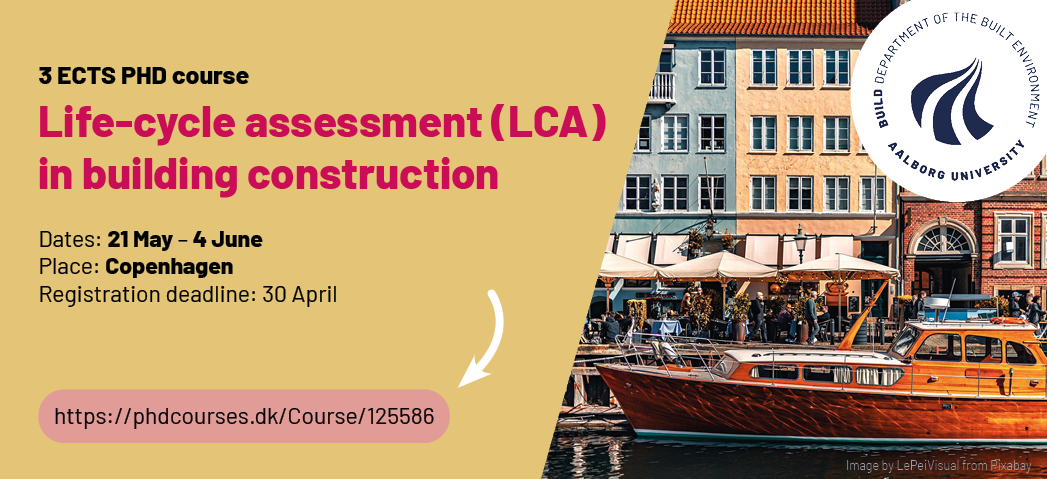Civil Engineering (2025)
Course image
Course summary text:
Cancelled!
Welcome to Microplastic Research – Analytical Methods for Microplastic Quantification ...
Civil Engineering (2025)
Introduction:
Course image
Course summary text:
CANCELLED!
Description: A...
Civil Engineering (2025)
Introduction:
Course image
Course summary text:
Welcome to Generation and Analysis of Waves in Physical Models (2025)
Description:
The course ...
Civil Engineering (2025)
Introduction:
Course image
Course summary text:

Welcome to Lifecycle assessment (LCA) in building construction
Description:
This course aims at ...
Civil Engineering (2025)
Introduction:
Course image
Course summary text:
Welcome to Interdiciplinary PhD Course on Universal Design
Description:
The purpose of the PhD ...
Civil Engineering (2025)
Introduction:
Course image
Course summary text:
Welcome to Advanced control for building applications
Topic, background and motivation for the ...
Civil Engineering (2025)
Introduction:
Course image
Course summary text:
Welcome to Modelica-based simulation of building and district energy systems
Course description:
Du...
Civil Engineering (2025)
Introduction: